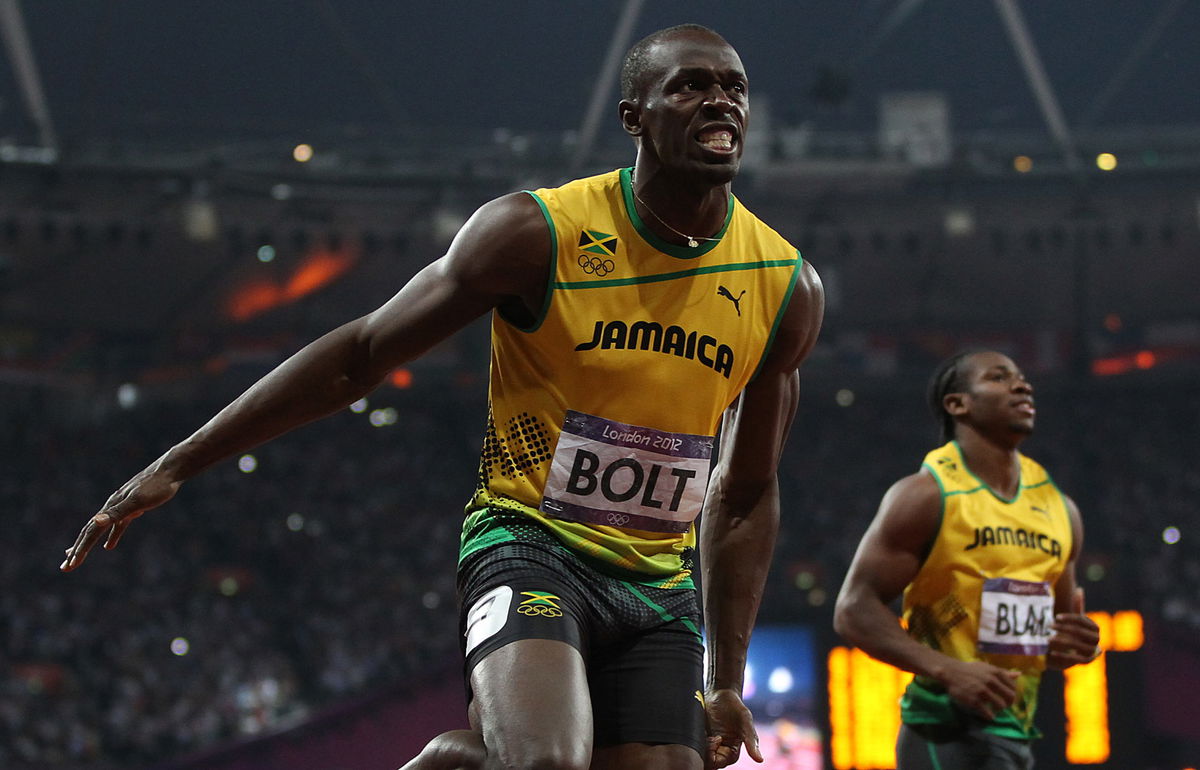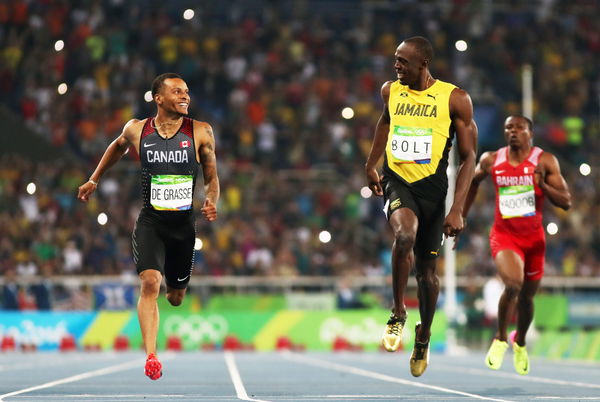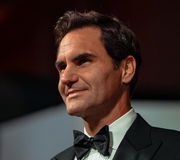
Getty
LONDON, ENGLAND – AUGUST 09: Usain Bolt of Jamaica celebrates after he wins gold during the Men’s 200m Final on Day 13 of the London 2012 Olympic Games at Olympic Stadium on August 9, 2012 in London, England. (Photo by Ian MacNicol/Getty Images)

Getty
LONDON, ENGLAND – AUGUST 09: Usain Bolt of Jamaica celebrates after he wins gold during the Men’s 200m Final on Day 13 of the London 2012 Olympic Games at Olympic Stadium on August 9, 2012 in London, England. (Photo by Ian MacNicol/Getty Images)
The incredible Usain Bolt won many gold medals during his time on the track. Despite retiring in 2017, his legacy in the track and field remains intact, courtesy of the pure dominance he showed. Hence, Bolt is one of the greatest advocates for athletics in the world.
Watch What’s Trending Now!
Recently, Bolt appeared in an interview, where he talked about the usage of spikes in the sport. Many companies are increasing the size of the spikes by four to five percent, thus giving a clear advantage for sprinters to push ahead to win races. However, Bolt seems unimpressed.
ADVERTISEMENT
ADVERTISEMENT
Usain Bolt shows no love for better spikes
The legendary sprinter spoke about how he did not like super spikes for the unfair advantage they gave to athletes.
“For me, it’s crazy to know that they are adjusting their spikes. But looking back over the years, they have adjusted the spikes. You know what I mean but it comes back to the same thing that I said,” said Bolt.
ADVERTISEMENT

Getty
RIO DE JANEIRO, BRAZIL – AUGUST 17: Andre de Grasse of Canada (L) and Usain Bolt of Jamaica (C) react as they compete in the Men’s 200m Semifinals on Day 12 of the Rio 2016 Olympic Games at the Olympic Stadium on August 17, 2016 in Rio de Janeiro, Brazil. (Photo by Shaun Botterill/Getty Images)
“This is why I don’t place too much on world records. Because now they’re gonna go, oh whatever spikes that can give you as you say four or five percent more. So they are getting help from the spikes to run faster.”
Top Stories
Greg Biffle’s $4M Worth Prized Possession Still Without a Buyer Leaves NASCAR Fans Heartbroken

LIV Golf Braces for Another Possible Exit in Wake of Brooks Koepka Departure

Sean Payton Announces Retirement Plans as Broncos HC Demands Improvement From Bo Nix & Co. Before Playoffs

Biff Poggi All But Confirms Bryce Underwood’s Michigan Future After Announcing His Own Departure

Roger Federer Draws Criticism from Swiss Government Chief for Tourism Boom in Country

Amanda Balionis Confirms New Relationship Ending Months of Rumors

“So for me, I will just say the rules are rules and this is what it is,” Bolt added.
ADVERTISEMENT
READ MORE-?Princess Anne Knights Olympic Teammate Over 45 Years After Representing Great Britain
A similar controversy in swimming
Like the controversy with the super spikes, a similar incident happened in swimming during the 2008 Beijing Olympics. A report on Speedos mentioned how 98 percent of the world records were smashed by swimmers who donned their specially designed Speedo’s LZR Racer.
ADVERTISEMENT

Getty
TOPSHOT – USA’s Michael Phelps competes in a Men’s 200m Individual Medley heat during the swimming event at the Rio 2016 Olympic Games at the Olympic Aquatics Stadium in Rio de Janeiro on August 10, 2016. / AFP / Fran?ois-Xavier MARIT (Photo credit should read FRANCOIS-XAVIER MARIT/AFP via Getty Images)
These suits had an unfair advantage for swimmers. Firstly, they reduced body drag, which had a smaller v-shaped wake left behind. The smaller that wake is, the better it is for the swimmers. Secondly, the suits reduced skin friction, which helped swimmers to push easily in the water. Hence, the authorities banned the suits.
Do you think the same should be done with super spikes?
ADVERTISEMENT
WATCH THIS STORY-?The Day Kevin Hart Actually Beat Usain Bolt in an NBA Showdown
ADVERTISEMENT
ADVERTISEMENT
ADVERTISEMENT

